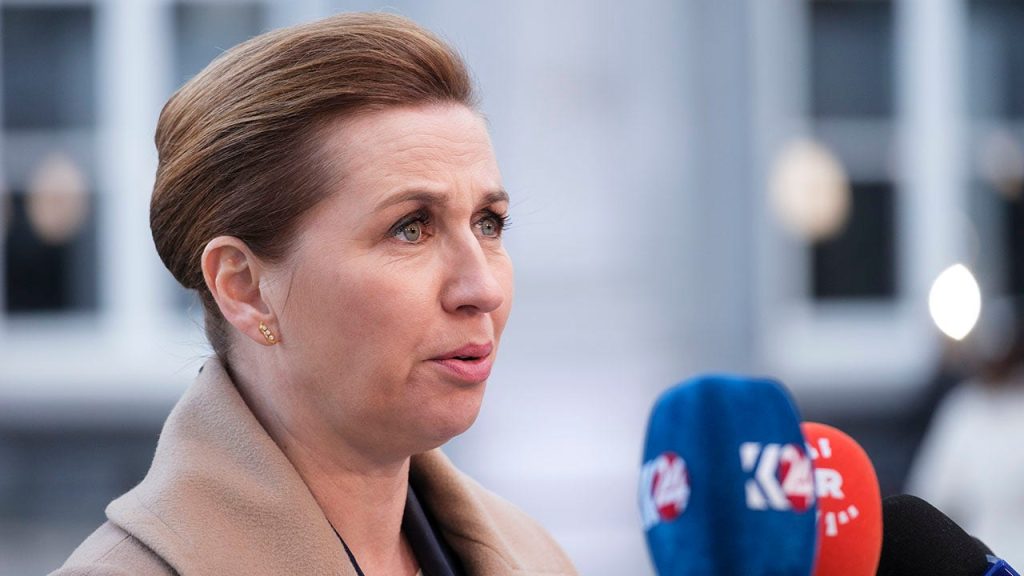The Danish Prime Minister, Mette Frederiksen, reiterated Denmark’s firm stance on Greenland’s sovereignty, emphasizing that the Arctic island is not for sale. This declaration comes in response to renewed discussions, fueled by comments from figures within the Trump administration, about the possibility of the United States acquiring Greenland. Frederiksen unequivocally stated that Greenland, a self-governing territory within the Kingdom of Denmark, is an integral part of Danish territory and not a commodity to be traded. This position is supported by the European Union, whose leaders have voiced their commitment to upholding the territorial integrity of member states. Frederiksen emphasized the importance of respecting the sovereignty of all nations, implicitly rejecting any suggestion of forced acquisition through military or economic pressure.
While firmly rejecting the notion of selling Greenland, Frederiksen expressed openness to strengthening the American presence on the island. She acknowledged the growing strategic importance of the Arctic region in terms of defense, security, and deterrence, particularly given the increasing activities of China and Russia in the area. Frederiksen suggested that Denmark welcomes an expanded U.S. military “footprint” in Greenland, building upon the existing U.S. Space Force base already present. She indicated a willingness to collaborate with the U.S. and NATO to enhance security measures in the Arctic, suggesting a potential avenue for increased American military presence without compromising Danish sovereignty.
The discussion surrounding Greenland’s status is intertwined with broader geopolitical tensions, including trade disputes between the U.S. and the European Union. Frederiksen addressed President Trump’s threat of imposing tariffs on EU imports, emphasizing the solidarity among EU members and their commitment to a collective response against such measures. This highlights the complex interplay between economic and security considerations in the transatlantic relationship, with Greenland serving as a focal point for these intersecting dynamics. Denmark’s recent investment in enhancing surveillance and sovereignty capabilities in the Arctic further underscores the country’s commitment to maintaining control over its territories amid growing international interest in the region.
Criticisms from within the Trump administration regarding Denmark’s role as an ally added another layer to the debate. Vice President JD Vance’s assertion that Denmark has not been a “good ally” due to its handling of Greenland drew a sharp rebuke from Frederiksen. She defended Denmark’s long-standing alliance with the U.S., emphasizing the country’s contributions to joint military operations and its commitment to shared security goals. Frederiksen framed the discussion on Arctic cooperation within the broader context of transatlantic security, highlighting Denmark’s commitment to combating terrorism, addressing destabilization in the Baltic Sea, and supporting NATO’s efforts on its eastern flank.
The Greenland issue is not solely a matter of military strategy and international relations; it also involves the interests and perspectives of the Greenlandic people. Vance’s remarks about the alleged dissatisfaction of Greenlanders with Danish rule and their desire for greater autonomy and resource development introduced an internal dimension to the debate. While Frederiksen did not directly address these specific claims, her emphasis on respecting Greenland’s status as a self-governing territory within the Kingdom of Denmark suggests a commitment to addressing the aspirations of the Greenlandic population within the existing political framework.
The renewed focus on Greenland’s strategic significance underscores the evolving geopolitical landscape in the Arctic region. Factors such as climate change, resource competition, and increasing great power rivalry are converging to elevate the Arctic’s importance in international affairs. Greenland, with its unique geographical location and potential resources, finds itself at the center of these converging forces. Denmark’s balancing act involves navigating the complexities of maintaining sovereignty, fostering international cooperation, particularly with its long-standing ally the United States, and addressing the needs and aspirations of the Greenlandic people. The ongoing discussions highlight the delicate interplay between national interests, international relations, and the evolving geopolitical dynamics of the Arctic region.

